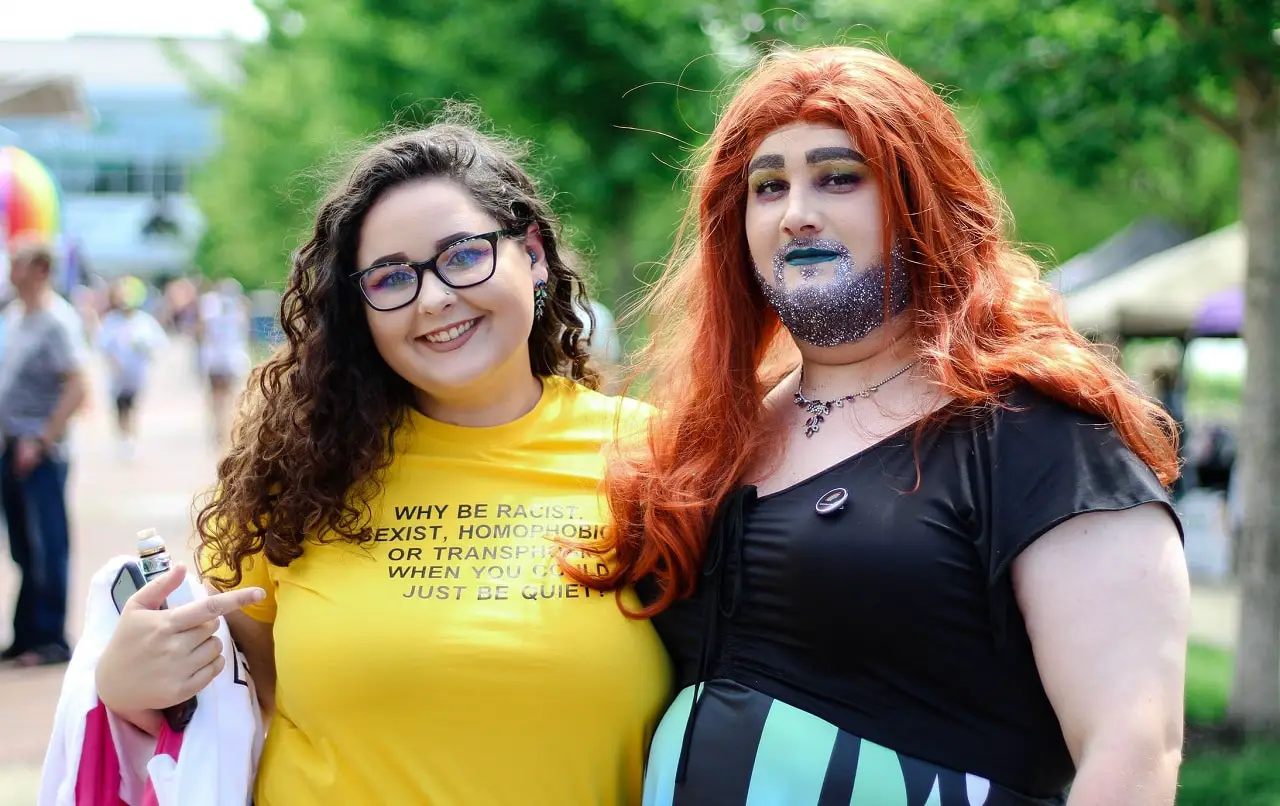According to the official story, “mental hospitals” are safe places where people with “mental illness” are kept — often against their will — in order to “treat them” (never happens, it’s a revolving door like the prison system). Prisoners are usually overmedicated, and sometimes subjected to electroconvulsive therapy or other forms of involuntary treatment that we shudder at when we see it in horror movies like One Flew Over the Cuckoo’s Nest.
Neurodiverse people, particularly those with autism, are disproportionately represented in these terror institutions. In the United States, it is estimated that one in three people with autism will be involuntarily committed at some point in their lives.
Related: The most notorious insane asylums in history
This is a human rights issue, and it’s time to deal with it — despite the taboo. We are seeing more posts about this pressing human rights issue on the daily, like this reddit post:
It’s disgusting that society puts people in those things. It is a clear violations of the principles of civil rights and the America ideal that all humans are created equal.
The idea of mental hospitals are based on the idea that neurodivergent people do not have the same rights as neurotypical people. Often locking them up without trial and without consent.
Within these facilities people are deprived of basic things, including privacy. Not even neurotypical prisoners are treated this way. Restraint (a form of physical assault) is used. Mind altering drugs are administered without consent, not for the sake of helping the people they’re being used on but for the ease of the people around them, or to try to make them neurotypical (sadly, this is how these drugs are often used on the outside as well).
Everyone I know who has been to one of these describes it as torture, I have even had a friend say jail is preferable, and I believe him (though I don’t think jails should exist either). These are not conditions ever acceptable to put neurotypical people in.
Neurodivergent people are being denied their basic rights to liberty and self-determination. They are being warehoused in institutions and treated like animals, even abused in ways that we would never tolerate being done to lab rats. Here are a few things that we need to organize and make happen.
#1. Destigmatize “mental illness”: it is neurodiversity
There is no one-size-fits-all answer to this question, as the best way to destigmatize neurodivergence may vary depending on the specific community and context. However, some strategies that may be effective include:
- Encouraging open and honest discussion about neurodivergence.
- Educating others about the realities of neurodiversity.
- Publicly uplifting and championing folks with neurodiversity as role models.
- Dispelling myths and stereotypes about neurodivergent people. No, they won’t attack you, or write with poo on the wall.
#2. Reform the mental health system
The mental health system is in dire need of reform. In the United States, the mental health system is woefully underfunded, wildly out of touch with the latest literature, and there is a severe shortage of mental health professionals. In addition, the mental health system is often adversarial, rather than supportive.

There is a need for more community-based mental health services, and a need for a shift away from the medical model of mental health. The medical model of mental health focuses on diagnosing and treating mental illness, and often pathologizes and stigmatizes those with “mental illness” aka neurodiversity.
#3. Advocate for the rights of neurodiverse people
Advocating for the rights of neurodivergent people is essential. Neurodivergent people should have the right to live in the community, rather than in institutions. They should have the right to make their own decisions about their lives, including decisions about treatment. And they should have the right to access the services and support they need to live happy, healthy, and fulfilling lives.
#4. Create alternative living arrangements for neurodivergent people
This includes group homes, intentional communities, and other types of alternative living arrangements that are designed to meet the unique needs of neurodivergent people.
These alternative living arrangements should be voluntary, and should be based on the principles of autonomy, self-determination, and community support.
#5. Put a final end to the practice of involuntary commitment and deinstitutionalize all neurodivergent people
Involuntary commitment, or civil commitment, is the legal process by which a person can be committed to a mental hospital against their will. In the United States, involuntary commitment is governed by state law, and the standards for involuntary commitment vary from state to state. The only constant is that it’s a severe human rights issue for marginalized communities like the neurodiverse, and Black folks.
So help get imprisoned folks out of psychiatric wards and into community-based settings where they can receive the support they need to live happy and productive lives. Some neurodivergent people may need more support than others, and some may need to live in group homes or other types of supported living arrangements. However, all neurodivergent people should have the right to live in the community, rather than in institutions.
No one should be subjected to involuntary commitment, and no one should be subjected to involuntary treatment. it is a nazi tactic that should have ended with the liberation of Bergen-Belsen.
#6. Volunteer for support and advocacy groups for neurodivergent people
There are many support and advocacy groups working to improve the lives of neurodiverse people. These groups provide support, information, and advocacy for neurodivergent people and their families, and also work to educate the public about neurodivergence, and to dispel the myths and stereotypes that surround it. And these groups need volunteers.

Whether you are neurodiverse or a neurotypical ally, consider getting involved in these groups. You can make a sizable difference in the lives of neurodivergents and go down in history as a human rights champion for these communities.
#7. Support research on neurodivergence
There is a need for more research on neurodiversity. This research should focus on the strengths and abilities of those with neurodivergence, rather than on their deficits. In addition, this research should be used to develop more effective methods of support and treatment, and to inform policy and practice, in order to better support those with neurodivergence.
#8. Educate others about neurodivergence
One of the best ways to destigmatize neurodivergence is to educate others about it. When people understand that neurodivergence is a natural variation in the way the brain functions, they are less likely to see it as a disorder or a disability, and more likely to see forced incarceration of these folks in mental hospitals as a severe human rights abuse.
There are many excellent books and articles about neurodivergence, and there are also a growing number of websites and online communities devoted to neurodivergence. Use these resources to dispel the myths and stereotypes that surround neurodiverse communities.
#9. Be an ally to neurodivergent people and advocate for neurodiverse rights all the time, everywhere
If you are a neurotypical, you need to be an ally to neurodivergent people. This includes educating yourself about neurodivergence, and speaking out against the discrimination and mistreatment of neurodivergent people.
Neurodiverse people have the same rights as everyone else, and it is important to advocate for these rights and work to create a more inclusive and supportive world for the neurodiverse in all settings and contexts. This includes the right to live in the community, the right to access adequate housing, healthcare, and education, and the right to be free from discrimination.
And most important of all, neurodiverse people have the absolute human right to refuse involuntary treatment in mental interment camps, and the right to be treated with dignity and respect.
***
We need to do better for our neurodivergent brothers and sisters. They deserve to live in a world that respects their rights and recognizes their humanity.
But there's more. Check out these bussin stories:
- Green
 A Jew who isn’t a climate activist isn’t possible: Judaism & the environment We are all passengers in this same fragile and glorious world. Let us safeguard our boat.
A Jew who isn’t a climate activist isn’t possible: Judaism & the environment We are all passengers in this same fragile and glorious world. Let us safeguard our boat. - Food / Drink SMH
 Dear racists: cannibals are people, too Cannibalism is a practice historically observed in various cultures and ethnicities. However, racists only seem to have an issue with it when people of color enjoy the controversial meal.
Dear racists: cannibals are people, too Cannibalism is a practice historically observed in various cultures and ethnicities. However, racists only seem to have an issue with it when people of color enjoy the controversial meal. - It Happened To Me
 I farted in my tattoo artist’s face “In 20 years of tattooing, I’ve seen some ridiculous things, but you’re the first to fart on me.”
I farted in my tattoo artist’s face “In 20 years of tattooing, I’ve seen some ridiculous things, but you’re the first to fart on me.”



“There is a need for more community-based mental health services”
Sorry, who? As in, which members of the “community”, exactly, will be taking care of the neurodiverse? If you thought mental hospitals were bad, wait till you get put into the care of a busybody from the suburbs with strong opinions on religion. If you thought ETC was bad, wait till your local snake-handling church/community care organisation decides to purge you of demons by locking you in a cellar or staking you out in the sun.
Wow. About time this got some airtime.
Lorem ipsum 123 789
This is so damn important. My heart has bled for these plight of the involuntarily committed all my life. I first became aware of the issue because of my interest in history, and reading about abuses in victorian asylums.